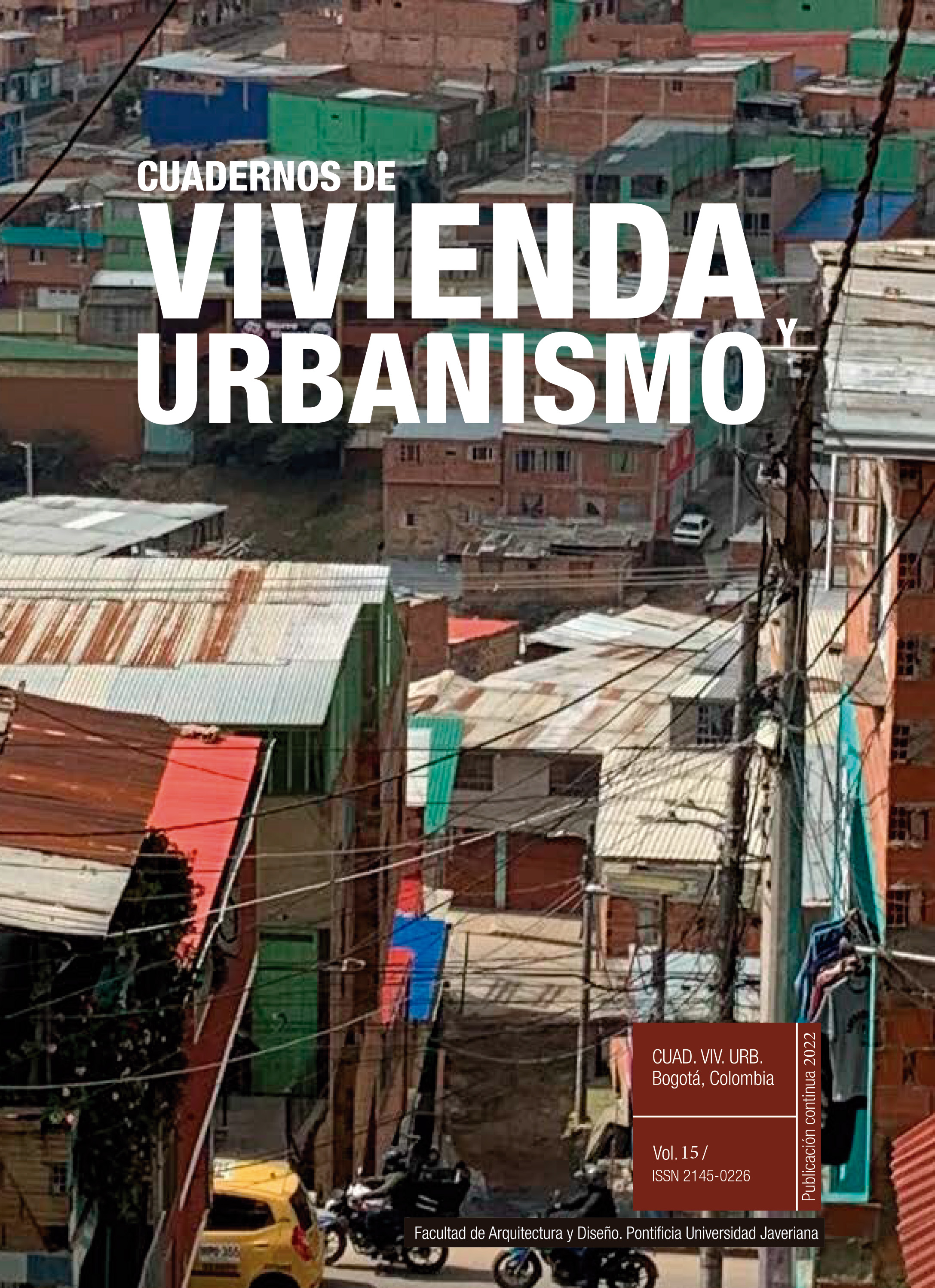Resumen
El uso del potencial del big data presenta retos para la gestión de las ciudades, sobre todo cuando se introducen sistemas inteligentes en el sistema de movilidad que afectan la vida y los desplazamientos de las personas en las ciudades. El objetivo del presente análisis es evaluar los sistemas inteligentes de movilidad urbana de la ciudad de Río de Janeiro. La metodología parte del reconocimiento de datos de las aplicaciones de movilidad, sumados a datos del sistema de metro, tranvía y bicicletas compartidas, que permiten identificar los distintos sistemas inteligentes y su espacialidad en el territorio de la ciudad. El resultado revela que existe una espacialidad selectiva de los sistemas inteligentes de movilidad en Río de Janeiro, que privilegia a algunos barrios según criterios que no corresponden a las demandas de la población, y muestra la necesidad de romper con el patrón histórico excluyente de movilidad.
Angelidou, M. (2017). The Role of Smart City Characteristics in the Plans of Fifteen Cities. Journal of Urban Technology, 24(4), 3-28.
Agencia Nacional de Transporte Público. (2017). Sistema de Informações da Mobilidade Urbana da Associação Nacional de Transportes Público. ANTP.
Barceló-Ugarte, T., Cabezuelo-Lorenzo, F., y Sánchez-Martínez, M. (2017). Ciudades inteligentes y apps para la ciudadanía: Análisis de casos pioneros en España. Anuario Electrónico de Estudios en Comunicación Social, 10(2), 225-236.
Costa, A., Egler, T., y Casellas, A. (2019). Política urbana de inovação tecnológica: experiências de cidades digitais no Brasil. Finisterra, 54(110), 93-113.
Grossi, G., y Pianezzi, D. (2017). Smart cities: Utopia or neoliberal ideology? Cities, 69, 79-85.
Instituto Rio Metrópole. (2018). Plano Estratégico de Desenvolvimento Urbano Integrado da Região Metropolitana do Rio de Janeiro (PDUI/RMRJ) [Tomo I]. IRM.
Joss, S., Sengers, F., Schraven, D., Caprotti, F., y Dayot, Y. (2019). The Smart City as Global Discourse: Storylines and Critical Junctures across 27 Cities. Journal of Urban Technology, 26(1), 3-34.
Kraus, L., y Farias, T. (2020). A política de artefatos tecnológicos smart. En T. Egler, A. Costa, y L. Kraus (eds.), Marcas da Inovação no Território (Vol. II, pp. 130-141). Letra Capital.
Lim, C., Kimb, K. J., y Maglio, P. P. (2018). Smart cities with big data: Reference models, challenges, and considerations. Cities, 82, 86-99.
Luft, R. M. (2020). Planejamento e financiamento da mobilidade urbana na região metropolitana do Rio de Janeiro. Geo UERJ, (36). DOI: https://doi.org/10.12957/geouerj.2020.48415
Matela, I. P. (2014). Reestruturação urbana neoliberal e as empresas de ônibus na cidade do Rio de Janeiro. Cadernos Metrópole, 16(31), 151-169.
McKenzie, G. (2020). Urban mobility in the sharing economy: A spatiotemporal comparison of shared mobility services. Computers, Environment and Urban Systems, 79. https://doi.org/10.1016/j.compenvurbsys.2019.101418
Odendaal, N. (2016). Smart City: Neoliberal Discourse or Urban Development Tool? En J. Grugel y D. Hammett (eds.), The Palgrave Handbook of International Development (pp. 615-633). Palgrave Macmillan.
Naciones Unidas. (2017). Nueva Agenda Urbana. ONU/HAbitat III.
Naciones Unidas. (2019). World Urbanization Prospects: The 2018 Revision. United Nations.
Pinna, F., Masala, F., y Garau, C. (2017). Urban Policies and Mobility Trends in Italian Smart Cities. Sustainability, 9(4), 1-21. https://doi.org/10.3390/su9040494
Pons, J. M., y Reynés, M. R. (2004). Los sistemas inteligentes de transporte y sus efectos en la movilidad urbana e interurbana. Geo Crítica / Scripta Nova. Revista Electrónica de Geografía y Ciencias Sociales, VI(170-60).
Porru, S., Misso, F. E., Pani, F. E., y Repetto, C. (2020). Smart mobility and public transport: Opportunities andchallenges in rural and urban areas. Journal of Traffic and Transportation Engineering, 7(1), 88-97. https://doi.org/10.1016/j.jtte.2019.10.002
Prefeitura Da Cidade Do Rio De Janeiro. (2019). Decreto nº 45781. Institui o Plano de Mobilidade Urbana Sustentável do Município do Rio de Janeiro. Prefeitura da Cidade do Rio de Janeiro.
Rodó, M. T. (2019). Experimentando con lo urbano: Políticas, discursos y prácticas. Athenea Digital, 19(2). https://raco.cat/index.php/Athenea/article/view/v19-2-tironi
Sabino, A. B., Reis-Martins, P., y Carranza-Infante, M. (2020). Experiencias y retos del uso de datos de aplicaciones móviles para la movilidad urbana. Revista de Arquitectura (Bogotá), 22(1), 82-93. https://doi.org/10.14718/RevArq.2020.3039
Shaheen, S., Cohen, A., Chan, N., y Bansal, A. (2019). Sharing strategies: carsharing, shared micromobility (bikesharing and scooter sharing), transportation network companies, microtransit, and other innovative mobility modes. En E. Deakin (Ed.), Transportation, Land Use, and Environmental Planning (pp. 237-262). Elsevier.
Tomaszewska, E. J., y Florea, A. (2018). Urban smart mobility in the scientific literature - bibliometric analysis. Engineering Management in Production and Services, 10(2), 41-56. https://doi.org/10.2478/emj-2018-0010
Vignoli, J. R. (2008). Movilidad cotidiana, desigualdad social y segregación residencial en cuatro metrópolis de América Latina. Eure, XXXIV(103), 49-71.
VLT Carioca. (2020). Demonstrações financeiras referentes aos exercícios findos em 31 de dezembro de 2019 e 2018 e relatórios dos auditores independentes sobre as demonstrações financeiras. VLT Carioca.
Zandonade, P., y Moretti, R. (2012). O padrão de mobilidade de São Paulo e o pressuposto de desigualdade. Eure, 38(113), 77-97.

Esta obra está bajo una licencia internacional Creative Commons Atribución 4.0.


